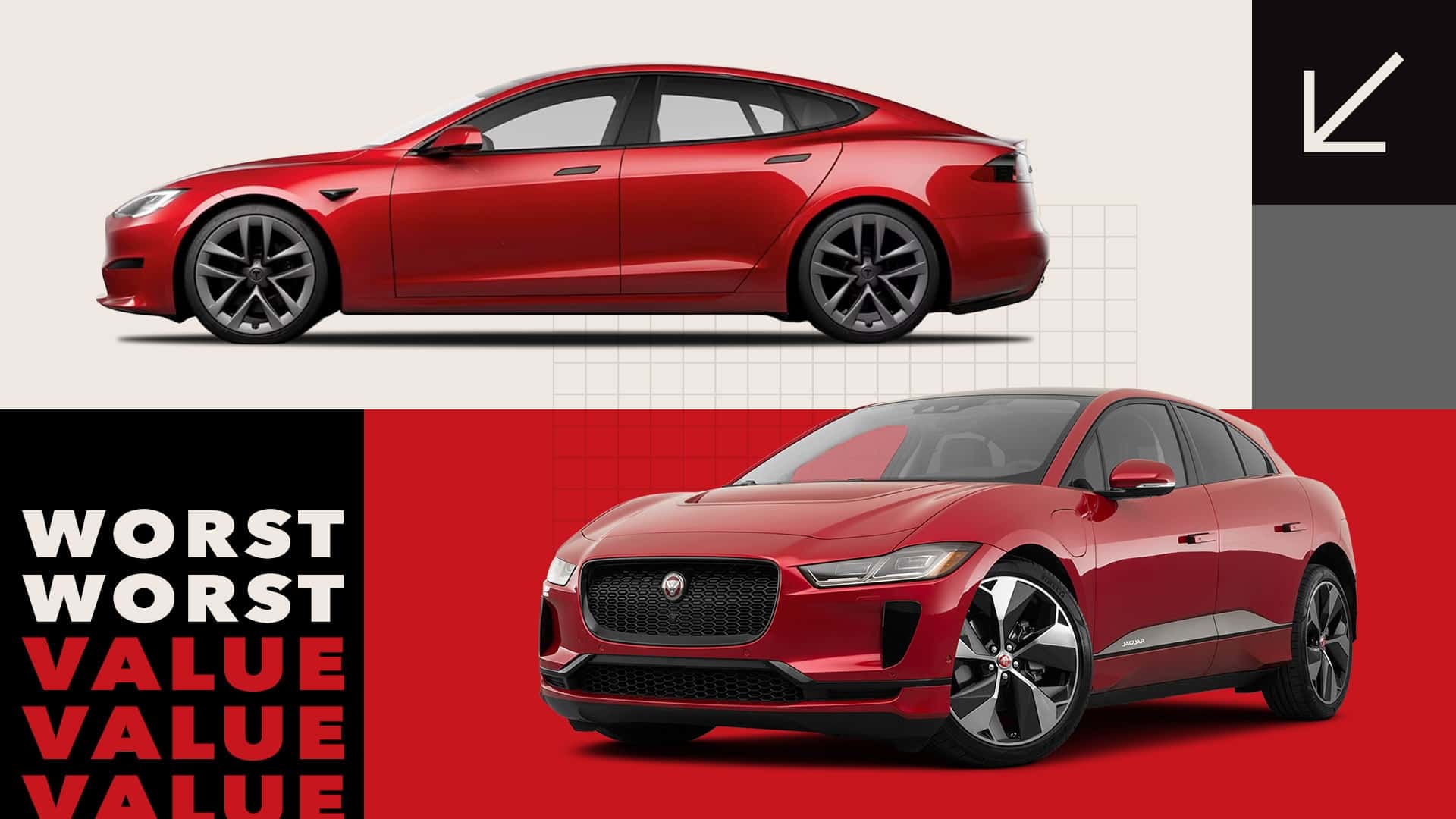
It’s nearly impossible to predict where the auto industry is headed in the next decade. Just a few years ago, many automakers made commitments to going full-EV. Now, hybrids are gaining in popularity once again, while fuel-economy standards have been effectively nullified in the US.
This shifting environment has had a noticeable impact on vehicle values. While EVs were once seen as the future, some models have experienced steep depreciation due to oversupply, changing regulations, and slower-than-expected adoption. Buyers who jumped in early may now find their vehicles worth far less than anticipated.
For consumers, that means it's more important than ever to understand which models tend to hold their value—and which don't. To get a clearer picture, let's take a look at the latest data from iSeeCars, which highlights the vehicles that depreciate the most.
Whether you're buying new or used, knowing which models lose value quickly could help you make a smarter financial decision.
10. Cadillac Escalade ESV

Average Five-Year Depreciation: 62.9%
Average Price Difference From MSRP: $56,996
The massive Escalade ESV is one of the most useful family vehicles you can buy. Now, it’s a pre-owned luxury darling. Although its platform mates, the Chevrolet Suburban and GMC Yukon XL, hold their value reasonably well, the Escalade offers an opportunity to bag premium vibes on the cheap while sharing reliable underpinnings with its truck mates.
9. Tesla Model X

Average Five-Year Depreciation: 63.4%
Average Price Difference From MSRP: $53,846
The Tesla Model X is one of the oldest EVs on sale right now. Fluctuating prices and lagging demand mean that the swoopy crossover is worth less than half its original MSRP. A potential steal if you don’t mind Tesla’s tarnished image.
8. Maserati Levante

Average Five-Year Depreciation: 63.7%
Average Price Difference From MSRP: $64,991
Maserati's depreciation is legendary. The Italian brand has a great name and a storied history, but its cars do not hold their value whatsoever. The Levante was Maserati’s first attempt at an SUV, targeting the likes of the Porsche Cayenne and BMW X5. While fine on its own, the company’s reputation makes this a very cheap buy. There’s a risk of expensive maintenance here, so purchase with caution.
7. Nissan Leaf

Average Five-Year Depreciation: 64.1%
Average Price Difference From MSRP: $18,043
The Nissan Leaf was the first mass-market EV. Sub-par range, slow charging speeds, and the Nissan-specific CHaDeMo plug limited the Leaf’s appeal, dropping its value. Once more, the Leaf makes for an absolute steal as a purchase—especially as a car for short trips.
6. BMW 5 Series

Average Five-Year Depreciation: 64.7%
Average Price Difference From MSRP: $47,457
Modern BMWs can be an expensive ownership proposition. That’s probably why the 5 Series, an expensive car when new, depreciates so much. Each generation gets more technology, which just means more stuff to maintain. That's why BMW's popular mid-size sedan is so high on this list.
5. Maserati Ghibli

Average Five-Year Depreciation: 64.7%
Average Price Difference From MSRP: $70,874
Maserati revived the Ghibli name for the modern age as a BMW 5 Series rivaling luxury sedan. Not a critical darling or a big seller, the Ghibli is now one of the cheapest ways to get into a Maserati. Ghibli production ended in 2023.
4. Infiniti QX80

Average Five-Year Depreciation: 65.0%
Average Price Difference From MSRP: $53,571
Okay, this is a surprise. Durable powertrain, body-on-frame chassis derived from the Armada, decent looks; the Infiniti QX80 had it all. Maybe it’s the uncertainty of Nissan’s—and thus Infiniti’s—fate. Either way, its dependable mechanics should keep you comfortably on the road for years to come, as there are plenty of spare parts available from its 14-year production run.
3. Tesla Model S

Average Five-Year Depreciation: 65.2%
Average Price Difference From MSRP: $52,165
The Model S was responsible for putting Tesla permanently on the map when it launched in 2012. Now, it’s a stale sedan with competition that’s caught up. Although Tesla doesn’t break out Model S sales, it’s safe to conclude that the luxury sedan isn’t the hot ticket item it once was.
2. BMW 7 Series

Average Five-Year Depreciation: 67.1%
Average Price Difference From MSRP: $65,249
The Bavarian flagship is a victim of heavy depreciation by classic means: expensive maintenance. The G11 7 Series used carbon fiber to reinforce the chassis and deliver great driving dynamics, making the large sedan a solid buy if you go Certified Pre-Owned.
1. Jaguar I-Pace

Average Five-Year Depreciation: 72.2%
Average Price Difference From MSRP: $51,953
We can forgive you if you haven’t seen one of these before. If you live in Los Angeles, maybe you’ve been ferried around in a driverless Waymo taxi, which deploys the Jaguar I-Pace in its fully autonomous fleet. The I-Pace was one of the first EVs from a traditional automaker to rival Tesla, but its strange shape and lack of marketing from Jaguar meant slow sales. Now, its specs are far behind other EV offerings.
Cars That Hold Their Value Worst
- Jagur I-Pace: 72.2% Depreciation
- BMW 7 Series: 67.1% Depreciation
- Tesla Model S: 65.2% Depreciation
- Infiniti QX80: 65.0% Depreciation
- Maserati Ghibli: 64.7% Depreciation
- BMW 5 Series: 64.7% Depreciation
- Nissan Leaf: 64.1% Depreciation
- Maserati Levante: 63.7% Depreciation
- Tesla Model X: 63.4% Depreciation
- Cadillac Escalade ESV: 62.9% Depreciation







